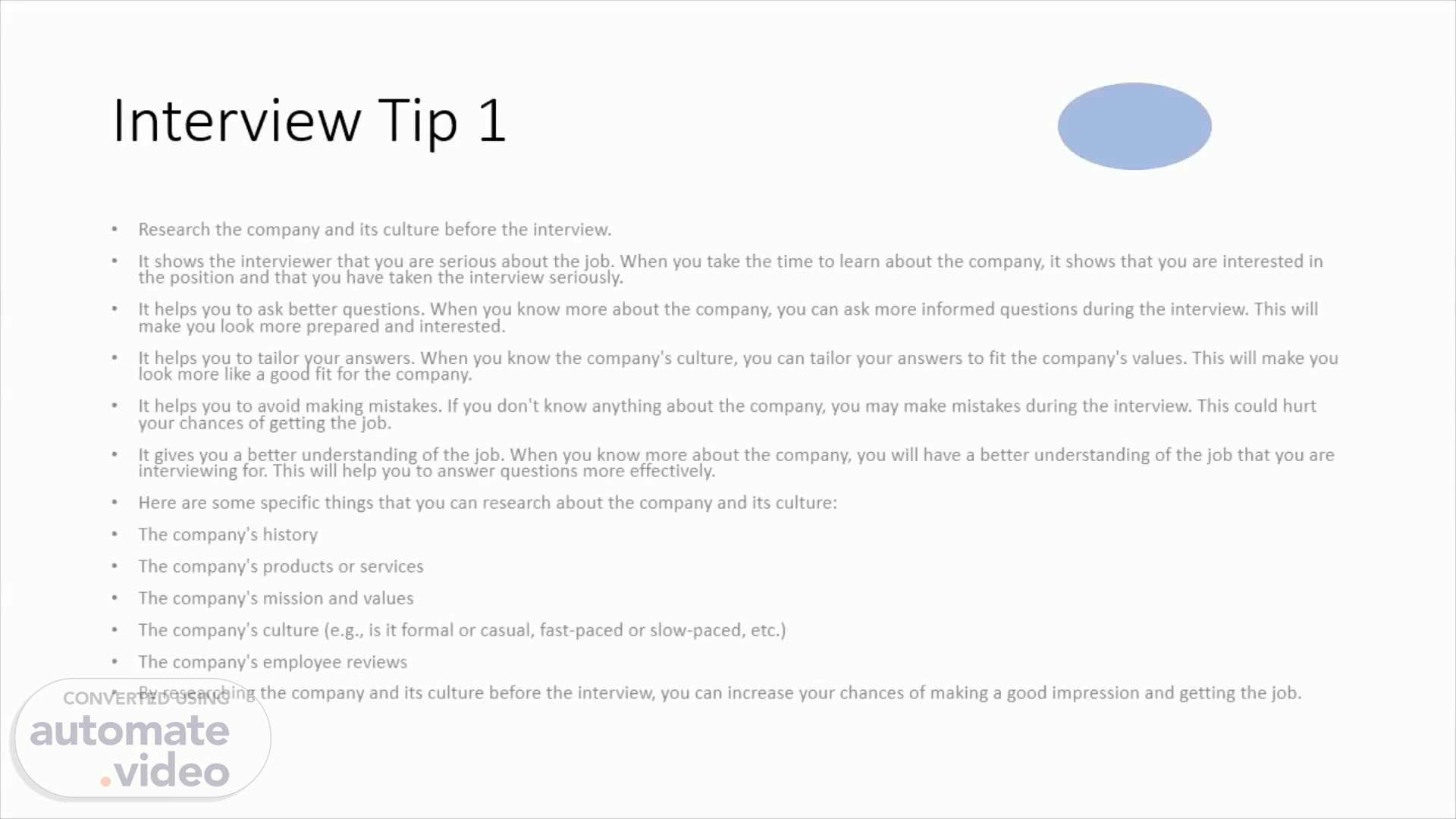Scene 1 (0s)
Interview Tip 1. Research the company and its culture before the interview. It shows the interviewer that you are serious about the job. When you take the time to learn about the company, it shows that you are interested in the position and that you have taken the interview seriously. It helps you to ask better questions. When you know more about the company, you can ask more informed questions during the interview. This will make you look more prepared and interested. It helps you to tailor your answers. When you know the company's culture, you can tailor your answers to fit the company's values. This will make you look more like a good fit for the company. It helps you to avoid making mistakes. If you don't know anything about the company, you may make mistakes during the interview. This could hurt your chances of getting the job. It gives you a better understanding of the job. When you know more about the company, you will have a better understanding of the job that you are interviewing for. This will help you to answer questions more effectively. Here are some specific things that you can research about the company and its culture: The company's history The company's products or services The company's mission and values The company's culture (e.g., is it formal or casual, fast-paced or slow-paced, etc.) The company's employee reviews By researching the company and its culture before the interview, you can increase your chances of making a good impression and getting the job..
Scene 2 (1m 2s)
Interview Tip 2. Practice your answers to common interview questions..
Scene 3 (1m 10s)
Interview Tip 3. Highlight your relevant skills and experiences. Start by identifying the skills and experiences that are most relevant to the job you are applying for. This can be done by reading the job description carefully and making a list of the skills and experience that are mentioned. Quantify your skills and experience whenever possible. This means providing specific examples of how you have used your skills and experience in the past. For example, instead of saying "I am a good communicator," you could say "I have a proven track record of communicating effectively with clients, colleagues, and stakeholders." Use specific examples to illustrate your skills and experience. This will help the interviewer to understand how you have used your skills and experience in the past and how you can use them in the future. Be specific about your accomplishments. What have you achieved in your previous roles? What impact have you had on your team or organization? Use keywords from the job description throughout your interview. This will help the interviewer to see that you have the skills and experience they are looking for. Be confident and enthusiastic when discussing your skills and experience. This will show the interviewer that you are passionate about the job and that you are confident that you can be successful. Be prepared to answer questions about your skills and experience. The interviewer will likely ask you questions about your skills and experience, so be prepared to answer them in a clear and concise way. Don't be afraid to brag about your skills and experience. This is your chance to sell yourself to the interviewer, so make sure you highlight your strengths and accomplishments. Be honest and authentic when discussing your skills and experience. The interviewer will be able to tell if you are being genuine, so be honest about your skills and experience. Practice, practice, practice! The more you practice discussing your skills and experience, the more confident you will be in the interview..
Scene 4 (2m 16s)
Interview Tip 4. Prepare questions to ask the interviewer about the role and company..
Scene 5 (2m 25s)
Interview Tip 5. Dress appropriately and arrive on time for the interview..
